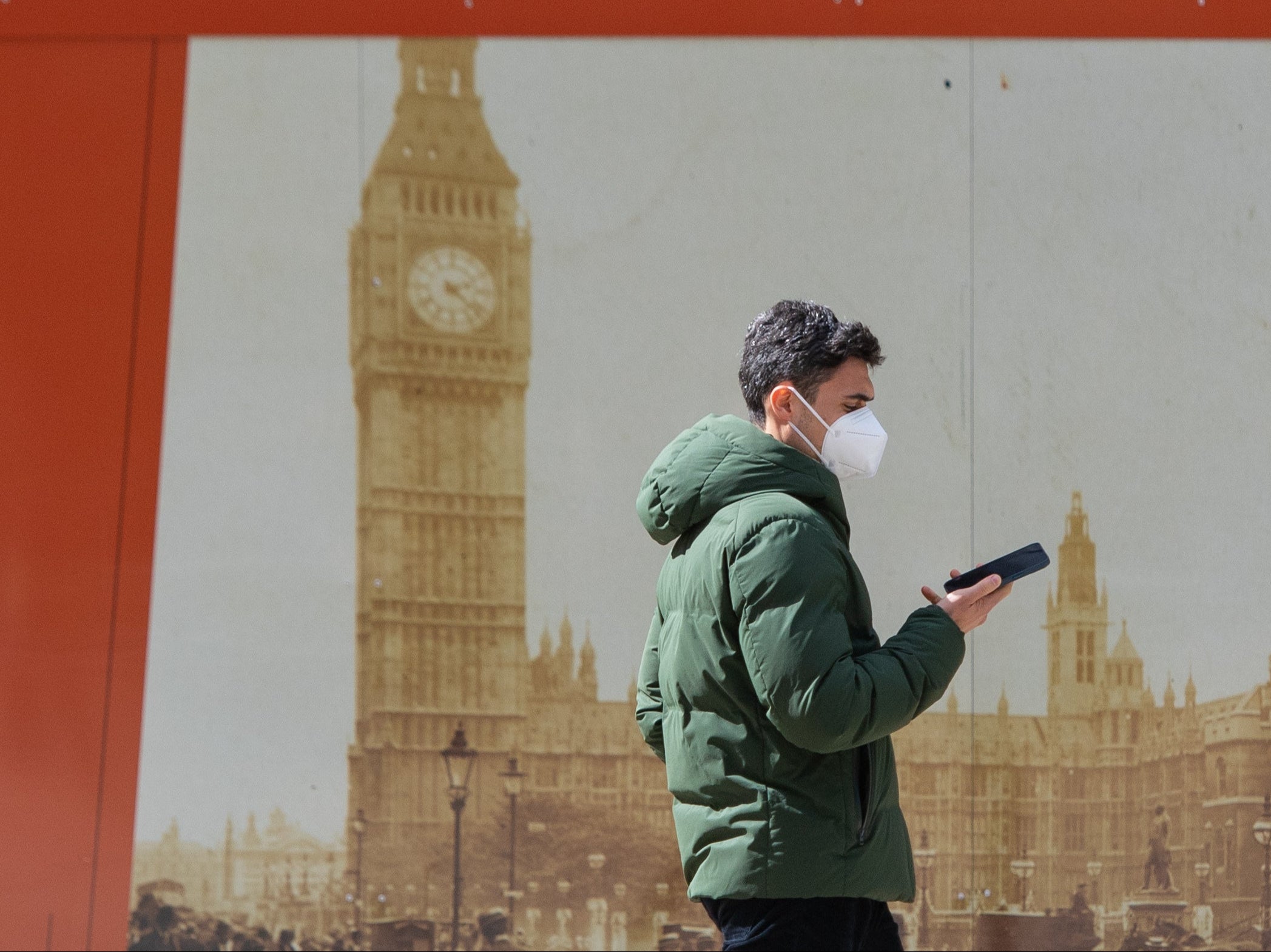Covid prevalence dropped by 60% in March but researchers warn decline ‘levelling off’
‘The most recent data doesn’t show a continued obvious decline, we have a levelling off of prevalence’, researcher says

Your support helps us to tell the story
From reproductive rights to climate change to Big Tech, The Independent is on the ground when the story is developing. Whether it's investigating the financials of Elon Musk's pro-Trump PAC or producing our latest documentary, 'The A Word', which shines a light on the American women fighting for reproductive rights, we know how important it is to parse out the facts from the messaging.
At such a critical moment in US history, we need reporters on the ground. Your donation allows us to keep sending journalists to speak to both sides of the story.
The Independent is trusted by Americans across the entire political spectrum. And unlike many other quality news outlets, we choose not to lock Americans out of our reporting and analysis with paywalls. We believe quality journalism should be available to everyone, paid for by those who can afford it.
Your support makes all the difference.The prevalence of coronavirus cases in England fell by around 60 per cent over the last month, with around 1 in 500 people on average still carrying the virus in March.
The latest React study, which monitors the spread of the virus in the community, has suggested there had been big falls in the southeast and London in March compared to the previous month.
However, researchers have said the latest figures suggest the decline in prevalence may be “levelling off”, while “persistent areas of higher prevalence” remained in South Yorkshire, parts of the East Midlands and the northwest.
Steven Riley, professor of infectious disease dynamics at Imperial College London, said: “The good news is prevalence has decreased by approximately 60 per cent from the previous round in February to the current results now in March.
“The most recent data doesn’t show a continued obvious decline, we have a levelling off of prevalence, and that’s reflected in an R estimate of 1.
Read more:
- Coronavirus news live: Latest AstraZeneca vaccine updates
- ‘Link’ between AstraZeneca vaccine and blood clots, EMA official says
- AstraZeneca vaccine blood clots: What are the symptoms to look out for?
- Which countries will be on the ‘green list’?
- Covid passports could be required for clothes shopping after 21 June, indicates Downing Street
“And we see some divergence between our observed patterns of infection and patterns of death since January, which we think probably suggests that the mass vaccination is breaking that link to some degree between infections and deaths.”
So far more than 1.5 million people across the country have provided swabs for the study, allowing researchers to paint a picture of the virus’ spread through society.
In total 140,844 swabs were collected for the latest round the of assessment between 11 and 30 March, with only 227 returning positive results.
The return marked a decline from the findings across 4 to 23 February, when 689 positive cases were found among 165,456 swabs.
The researchers’ findings, due to be released as a pre-print, were outlined in a briefing to journalists on Wednesday.
In addition researches found the rate of infection in the community stood at 0.2 per cent in March – down from 0.49 per cent in February and 1.57 per cent in January.
And while on average there had been an overall decline in Covid prevalence over the whole of February and March, researchers observed last month’s data indicated this had flattened off.
However when comparing infections and death and hospital admissions, researchers observed “fewer deaths per infection” than they would have expected based on recent prior months of the study.
Prof Riley added: “To a lesser extent, we’re seeing fewer hospitalisations per infection as well.
“We think that this is a signal of how the vaccination programme is breaking the link, the previously strong link, between the pattern of infections and the patterns of deaths and hospitalisations.”
Professor Paul Elliott, director of the programme at Imperial from the School of Public Health, said: “I think we’re beginning to see in our data the effect of the vaccine, certainly in severe outcomes.”
He added that more work was needed to look at the impact of the vaccine on prevalence and transmission.
Prof Elliott acknowledged that the “big decline” in the rate of infection had “flattened off” in March but said it was “good news” that it did not rise with the recent relaxation of restrictions, such as more permitted social mixing and the return of pupils to schools.
He said a “close watching brief” was needed as lockdown is eased further, with a “careful balancing act” needed.
Additional reporting by PA
Join our commenting forum
Join thought-provoking conversations, follow other Independent readers and see their replies
Comments